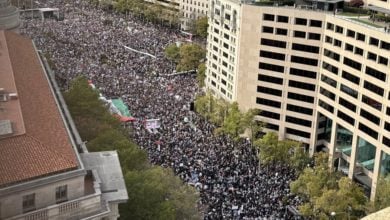Transcribed by Joe Delaplaine
The following is a rush transcript of the third segment from the Aug. 31 episode of Loud & Clear with Brian Becker on Radio Sputnik. Click here to listen to the entire episode.
Brian Becker (BB): Dilma Rousseff has been removed from office following her impeachment trial as more than two-thirds of the Upper House, voted for her ouster. Michel Temer takes the reins of the presidency but will his government have any legitimacy in the eyes of the people? Is the end of progressive rule in Brazil? Or merely the beginning of a protracted struggle? And how will the new political situation in the country effect the continent and the global geopolitics? Today we’re joined for the full hour by geopolitical analyst, Pepe Escobar, as well, by London, activist, Victor Fraga of “Democracy for Brazil,UK” welcome Pepe and Victor.
Victor Fraga (VF): Thank you.
Pepe Escobar(PE): Nice to be with you guys.
BB: Thank you so much. Victor, let’s start with you. Brazil’s Senate has removed Dilma Rousseff from the presidency it’s historic she was the first female Head of State. She was one of the country’s most striking personalities. A former Marxist guerrilla fighter. She endured torture, helped found the political party, oversaw the oil giant, “Petrobras”. Survived cancer. Talk about what this impeachment means, this removal from office.
VF: What happened to Dilma, isn’t just an “insult to Democracy”. Isn’t just a coup d’etat. It’s a permanent wound to our pride, our confidence, in justice.
[Dilma’s impeachment] shows that Brazil will always remain a young democracy. Will always struggle as a young democracy. Will never mature.We have a history of coup d’etat. Several coup d’etats. We have, if I’m not mistaken only four presidents that [have] carried out their terms to the end in the past 80 years. The other [leaders] didn’t for diverse reasons: coup, death, political development, and so on.
In a modern context this also means that this is a victory is this is a victory of the elites, of the aristocrats, a of victory of the large landowners. This is a victory of the reactionary and oppressive forces against the people, the poor, the working classes. This is nothing short of an absolute disaster.
I, myself, am 37 years of age. I’ve lived in the UK for 18-19 years. I have never in my wildest dreams thought I would see coup d’etat –a borderline fascist coup d’etat– taking place in Brazil with a very thin veneer of legitimacy. Which every coup, every political development everywhere in the world has.
Saddam Hussein technically won his election with 99% of the vote. Even in the Inquisition there were judges there.
So this is a victory of the cynical and hypocritical. So Dilma is, as you pointed out, a woman who survived, freezing prison. She was hung upside down, she had her vagina cut, she had her nipples cut. She was punched so hard that her jaw was [dislocated]. That’s one of the reason why her speech still has never fully recovered. She survived a very painful type of lymphoma cancer, Hodgkin lymphoma cancer.
And she said in her speech on Monday the only thing that, she said now is that, “democracy should…”, a woman who is nearly 70 years of age, she stood in the Senate for nearly 14(?) hours, she didn’t have to, she spoke calmly, with decorum. All along [Dilma] laid out the reasons why this is so blatantly a coup d’etat.
BB: That was Victor Fraga. Pepe Escobar, I talked to you the other day on “Loud and Clear”. We were talking about what’s going on. We’ve talked before about this unfolding protracted somewhat slow motion extra-parliamentary –maybe now parliamentary– but certainly “extra electoral” coup d’etat. When I asked you, “do you think this would happen?”, you said, “yes.” It wasn’t certain but you believed this was going to happen. Why has it come to this?
Pepe: Well let’s say it’s a chronicle of an “impeachment foretold”. We knew it would happen. But considering Brazil is Brazil, and everything is open to “dodgey deals”, there was the possibility of a last minute dodgey deal involving the Workers Party and the PMDB.
Of course that’ll happen but the possibility was still there. But we knew this was where the whole thing was going from the beginning. Because the agenda, from the beginning, was two-fold: the number one, impeachment of Dilma; number two, criminalization of Lula. This is an ongoing process.
The whole thing is about the getting the Workers Party out of the Brazilian political system! This is the agenda of the oligarchs in Brazil, who remote control this whole thing. Most of these people in Congress, like the Scoundrels in Congress are like the scoundrels in the Senate, they’re messenger boys, they’re paperboys.
These people were elected with dodgy money, with dodgy deals. When they are inside Congress or in the Senate, they are part of huge rackets inside Brazil.
Brazil is basically [laughs] if you think that K Street in Washington is the “racket capital of the world”, well, Brazil is not that far away on an “America’s level”. And on a global level [Brazil] is much worse than elites all over the world.
I know this because I actually lived virtually every… I lived in UK, France, in the U.S., in Asia. So I know how the elites work everywhere and I had the great displeasure of growing up with a great deal of the Brazilian elites themselves. Their arrogance, their ignorance, their disrespect for democracy.
In fact, when the military coup is 1964 happened, I was 10 years old. Later on, when I got inside story, many of my older colleagues who were, let’s say, “one generation ahead of me”. We, the younger generation, we picked up the real story of what really happened in ’64 by them.
And now we have the same thing happening, but of course we don’t need direct intervention by the U.S. like the The Ambassador Lincoln Court in Brazil 1964, we don’t need attacks in the streets. It’s a much more complex, 21st Century, digital, high-tech coup.
It’s parliamentary, it’s big business it’s big Banking, it’s institutional, it’s juridical, it involves use of the public Ministry [and] the Federal Police.
I wrote many times –including for us Sputnik and RT, for that matter– it was a very calibrated form of “hybrid war” with plenty of interests.
There were local interests, political interests, of the oligarchs who control the rats in the Congress and Senate.
Big business which is basically, five families that control corporate media in Brazil. I know these people well, I grew up with them, I wrote for their newspapers while I was still living in Brazil. A long time ago. So when you know these people and you know their mentality, they are ready for everything.
And having lost four Presidential elections in a row, for the Workers Party, was too much. The whole “destabilization” actually started even before the end of the last (previous) presidential election in late 2014. They knew they were going to lose and they started to undermine the whole political system even before that.
So the whole year of 2015, that’s exactly what happened. And 2016, the same thing.
So it’s a year and a half of absolute paralysis. Total polarization. And they know that they had a shot at a parliamentary, institutional, judicial way because they could concoct charges like they did concoct. What Dilma was actually accused of , the so-called “crime of responsibility”, this was something every previous government in Brazil actually did. Which is, tampering a little bit [with] State budget as long as you put the money back, which is exactly what she did.
So she didn’t get any of these funds for her personal enrichment and the State budget didn’t suffer. And everybody does this in Brazil, in local, regional and state level in Brazil.
So, on a technicality, they found their opening. She could not be accused of corruption because she’s not corrupt. She never was. As Victor explained, she’s a woman of honor.
BB: Yes, that’s Pepe Escobar, he’s (9:38) talking to us from Thailand, he’s a geopolitical analyst. We’ve been talking to Pepe over the past months about the unfolding coup that’s been consummated inside Brazil [today].
We’re also talking to Victor Fraga from London. Victor, let me ask you about the 1964 coup because the United States obviously had its fingerprints all over it. It was the U.S. embassy, the U.S. military and the Brazilian military. The U.S. military trained many of them at the Schools of the Americas in Fort Benning, Georgia. Where Latin American militaries learned torture techniques and other nefarious activities. But this coup is different. One, it’s not the kind of coup –at least it doesn’t seem to be– [a coup] that represents a historic kind of defeat like in 1964 [which] took decades to recover [from] because the Left and progressive forces were extinguished.
Right now people can resist. People can be in the streets, do you expect it? Or is there too much exhaustion because of the protracted character? Or do you think there will be resistance in the streets because of what happened?
VF: There will certainly be resistance on the streets in Brazil and abroad on the streets. I’m certainly been protesting outside Brazilian embassy. You pointed out that the coup in 1964 was supported by the U.S. and I would argue that the same thing happened this time in 2016. There’s plenty of evidence to show that the U.S. was involved up to their necks.
First of all, Aloisa Nunez a key coup plotter, the day after vote in the Lower House of Parliament, he went to the U.S. to meet with Thomas Shannon [U.S. State Department’s Under Secretary of Political Affairs], who is the most senior person in Latin American affairs, of course indirectly, through Obama.
The American Ambassador of Brazil, during the coup, Liliana Ayalde, is the same ambassador of the U.S., in Honduras and in Paraguay when both countries suffered a coup d’tat.
The Koch brother [own many] oil refineries, which is a relatively lesser well known organization in the U.S. and yet one of the top 5 organizations in the U.S. They’re well known for lobbying and supporting very reactionary groups.
The NBL is the group that took the students to the streets, they picked this guy called, King Carthagary, put him at the front, saying, “he is the voice of the youth”, so that was financed by the U.S. as well. He won a prize in the U.S. recently. The judge who has been feigning and fabricating evidence and factoids against Lula, he was trained by the CIA back in 2010 and 2011. And there’s plenty of literature to show that. So it is just “history repeating”.
People, will however go on the streets. They will demonstrate. People did it back then, people demonstrated in the ’60s. When the coup first happened in ’64, it wasn’t that oppressive. It wasn’t until they passed the “Ato Institucional Número Cinco”, the “Ai-5” law that four years later, that the situation got very harsh and people could not go out into the street.
People were demonstrating in the street but there was already censorship in the air.
The film, “Aquarius”, protesting on the red carpet in Cann. You might remember Sonia Braga, the film crew holding signs saying, “There’s a Coup in Brazil”, which is obviously a very prominent place. The coup government reacted angrily, and gave the film an adult certificate and has been boycotting it from becoming Brazil’s entry for the Oscar. As a consequence, loads of other artists withdrew from the Oscar entry. So there is oppression now. Oppression was not just back in 1964. Perhaps [now] it’s much more thinly spread but it’s there, perhaps not a “frothing beast”, but it’s there and it’s extremely dangerous.
So things are now in many ways remarkably similar to ’64. ’64 was not a very violent year. Only four years later the dictatorship became very violent. So what could come, does not look very rosey. So we’re certainly going to fight for the best. Keep in mind that they won’t hesitate to do their worst. It’s an alliance of scoundrels, enslavers, fascists, drug traffickers, …bible-bashers, they are the most reactionary type you can think of.
So there’s going to be a lot of polarization. It’s not that different from 1964, there’s no military element [for now], that’s true, but it could get very nasty.
BB: Okay, we have about two minutes left. Pepe Escobar, let’s talk about the economic and social circumstances that provide the backstory, the big picture context for the political maneuvering, the machinations of the coup-makers.
Obviously, the Right-wing thought they might win the election of 2014. They were surprised when the Dilma Rousseff government, Workers Party government won the fourth consecutive election. And it seemed at that time that the coup planners went into high gear.
But talk about the economic and social circumstances that would create the social circumstances for this to take place. We only have 45 seconds before our break, but we’ll pick this up after the break.
PE: It’s basically the conjunction of two factors. The [first being] that the 2008, Wall Street-initiated [global, economic] crisis only hit [Brazil] a few years later, around 2013/2014, right before the Brazilian Presidential election in 2014. And [the second factor being] Brazil doesn’t have a “plan b”.
“Plan A” was the export of commodities and goods, mostly to China and they didn’t have a plan b at all which would be much more investing in education, forming cadres that could compete with people from China and South Korea in terms of “value added manufacturing” and exporting.
Brazil would need at least one generation to do that. And obviously, with previous governments before Lula, this could never happen. Lula’s first plan was to get the maximum number of Brazilians out of poverty and into straight into “lower-middle class” citizens.
BB: Let’s leave it there, you’re listening to “Loud and Clear”, we’ll be back






